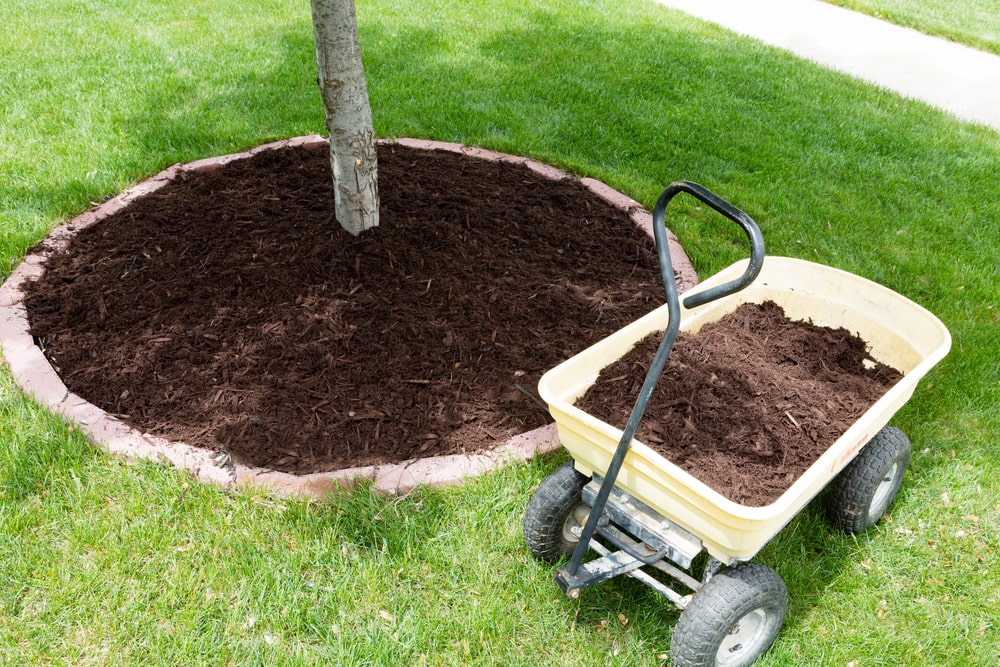Gardening is both an art and a science, with each decision impacting the health and beauty of your garden. One such crucial decision is the selection of mulch. Mulching not only enhances the visual appeal of your garden but also plays a vital role in maintaining soil health and plant growth. This comprehensive guide delves into the top five types of mulch, detailing their unique advantages and helping gardeners choose the best option for their specific needs.
The Significance of Organic Mulches
Organic mulches are derived from natural materials that decompose over time, enriching the soil with nutrients. They are an excellent choice for gardeners aiming for a natural, sustainable approach.
Bark Mulch
Bark mulch, obtained from the barks of trees like pine and cedar, is renowned for its durability and visual appeal. It’s available in various forms, including shredded bark for a finer texture or larger nuggets for a more rustic look. Cedar bark, in particular, is celebrated for its natural oils that repel insects, making it a practical choice for gardens prone to pests.
Straw Mulch
Straw mulch, commonly used in vegetable gardens, is an affordable and sustainable option. It provides excellent root insulation, safeguarding plants from temperature fluctuations. As straw decomposes, it enriches the soil, enhancing its fertility and structure. This mulch type is especially beneficial for newly seeded areas, as it prevents soil erosion and maintains adequate moisture levels.
The Advantages of Inorganic Mulches
Inorganic mulches are long-lasting and typically require less frequent replacement. They are ideal for gardeners looking for a low-maintenance solution.
Stone or Gravel Mulch
Stone or gravel mulch is a robust, permanent option that excels in areas where water drainage is a concern or where heat-loving plants are grown. Its variety in color and size offers a creative palette for garden design. This type of mulch also suppresses weeds effectively and is a popular choice for pathways, driveways, and areas near buildings due to its fire-resistant nature.
Rubber Mulch
Rubber mulch, a recycled product from used tires, stands out for its resilience and longevity. It’s an eco-conscious choice that limits weed growth and retains soil moisture efficiently. Additionally, its shock-absorbing properties make it a safe covering for playgrounds. Gardeners should consider its impact on soil chemistry and its suitability for their specific garden type.
Exploring Specialty Mulches
Specialty mulches offer unique characteristics that can cater to specific gardening needs or aesthetic desires.
Cocoa Bean Shell Mulch
Cocoa bean shell mulch is a luxurious choice for gardeners who appreciate sensory appeal. Its rich color and pleasant chocolate aroma create a delightful garden experience. It’s particularly rich in nutrients, promoting soil health while retaining moisture effectively. This mulch type is also known for deterring garden pests like slugs and snails, making it a functional and attractive option.
The right mulch can transform your garden, impacting everything from soil health to plant vitality. Whether you prefer the natural enrichment of organic mulches, the durability of inorganic options, or the unique properties of specialty mulches, there is a type to suit every gardening need. Consider your garden’s specific conditions, such as soil type, climate, and plant selection, when choosing your mulch to ensure optimal growth and health.
Additional Tips
When applying mulch, consider the needs of your specific garden areas. A depth of 2-3 inches is generally recommended, but be mindful of plant species that might require less. Avoid piling mulch against plant stems or tree trunks to prevent rot and pest infestation. Regularly inspect and replenish your mulch to maintain its protective and aesthetic properties. By choosing and applying mulch thoughtfully, you can significantly enhance the health and beauty of your garden.

